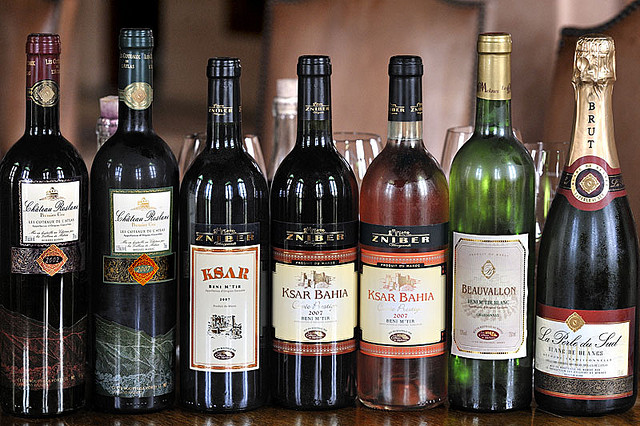Posts Tagged ‘Morocco Wine Tours’
Wine production in Morocco is believed to have been introduced by Phoenician settlers, and was definitely established in the era of Ancient Rome. Large-scale wine production with extensive vineyards was introduced into Morocco by the French during the protectorate as it was in Algeria and Tunisia. Today’s regions in Morocco…
Restaurant menus and wine shops in Morocco present travelers with an astounding array of choice in excellent Moroccan wines. But where should the person unfamiliar with Moroccan wines begin? This article will provide a starting point and serve as a Moroccan Wine Guide by recommending some inexpensive good-value Moroccan wines. Morocco has been a leading wine producer and its bold red and white grapes have become popular among the French, Americans and within Modern Moroccan households. When the French colonized Morocco, like the Romans centuries before them, they realized Morocco’s possibility of being a wine country. The French developed Meknès, a Moroccan Imperial City, into a wine region. Today 30,000 acres of land in Morocco contribute to wine production and Morocco sells over 40 million bottles within Morocco and abroad. Moroccan wine is in a state of revival and wine producers are taking advantage of the country’s sunny, mild temperate climate, and high altitudes.



